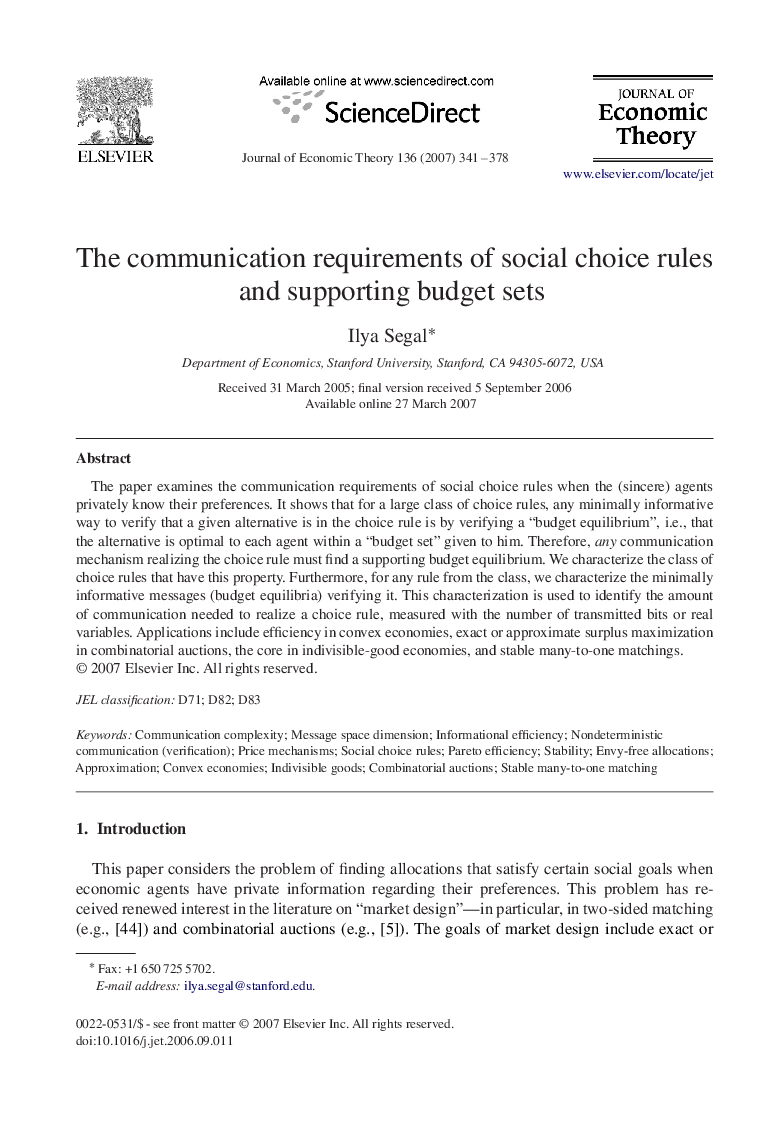| Article ID | Journal | Published Year | Pages | File Type |
|---|---|---|---|---|
| 957353 | Journal of Economic Theory | 2007 | 38 Pages |
The paper examines the communication requirements of social choice rules when the (sincere) agents privately know their preferences. It shows that for a large class of choice rules, any minimally informative way to verify that a given alternative is in the choice rule is by verifying a “budget equilibrium”, i.e., that the alternative is optimal to each agent within a “budget set” given to him. Therefore, any communication mechanism realizing the choice rule must find a supporting budget equilibrium. We characterize the class of choice rules that have this property. Furthermore, for any rule from the class, we characterize the minimally informative messages (budget equilibria) verifying it. This characterization is used to identify the amount of communication needed to realize a choice rule, measured with the number of transmitted bits or real variables. Applications include efficiency in convex economies, exact or approximate surplus maximization in combinatorial auctions, the core in indivisible-good economies, and stable many-to-one matchings.
